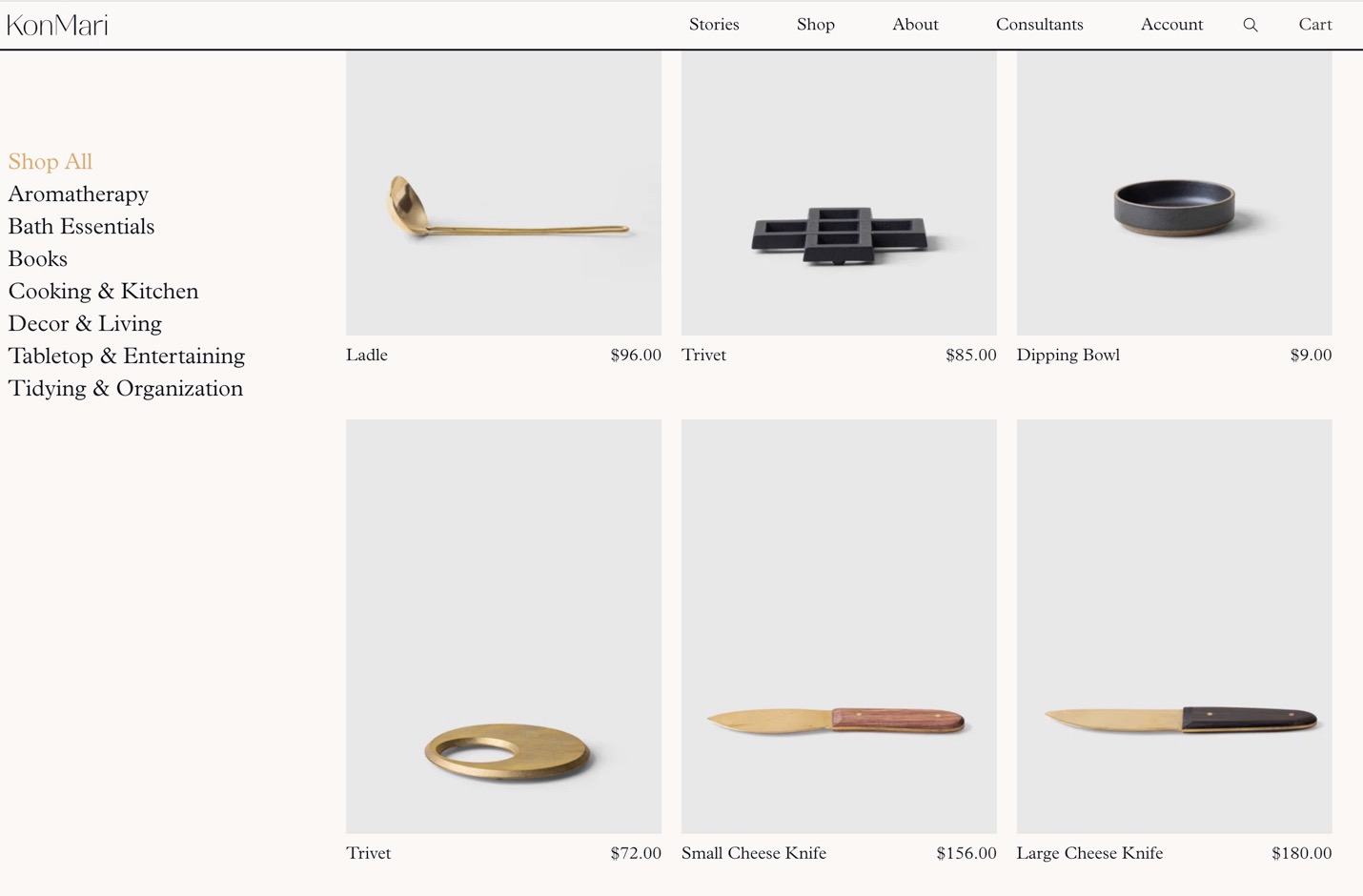Marie Kondo is the Japanese ‘organising consultant’ who became famous by teaching us how to tidy-up.
Unfortunately, things have got messy with the launch of her online shop, whose pricey housewares have sparked guffaws in the media.
For instance, you can have a small cheese knife for a mere $156; or, if you feel like splashing out, a large one for $180. Other highlights include a tuning fork, but not just any tuning fork. This one has a frequency of 4,096 hertz which “is said to amplify the healing properties of crystals.” It’s a steal at $50 (crystal not included).
For $22 you can get an Erode Mini Soap. Admittedly, this would be quite a lot to ask even for a maxi soap, so what makes it so special? Helpfully, the website provides some technical details: “When grasped by a wet hand, the soap’s scents and botanical ingredients are revealed in layers as its unique form evolves.” Where’s the soap? Yes it does, doesn’t it…
The whole Marie Kondo phenomenon reminds me of something I’ve written about before, which that when luxuries become abundant the rejection of abundance becomes the new luxury. I think I’ll call this Kondo’s Law.
There are many examples. White bread is a good one. Once the preserve of the privileged few, it became common place in the modern world. Today, the positional good is the sort of knobbly brown loaf a medieval peasant would have fed to the horses. Or take physical inactivity. In the old days you had to be wealthy to escape the toil of the fields. Now professionals pay to sweat in over-priced city-centre gyms.
If anything, Kondo’s Law is accelerating. Thirty years ago only the rich had mobile phones, now they boast about not having them.
And, of course, there’s that ultimate symptom of contemporary abundance — minimalism. When you have nothing, the spartan look is easily achieved. Now we’ve got too much, we can’t even throw it away without Ms Kondo’s help.
And speaking of things to throw, how about this exquisitely crafted stick? It’s yours for only $12!











Join the discussion
Join like minded readers that support our journalism by becoming a paid subscriber
To join the discussion in the comments, become a paid subscriber.
Join like minded readers that support our journalism, read unlimited articles and enjoy other subscriber-only benefits.
Subscribe